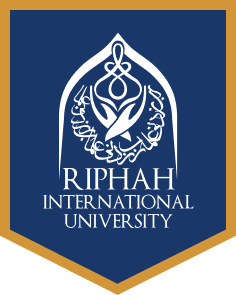Master of Science in Data Science (MS-DS)
Program Overview
“Information is the oil of the 21st century, and analytics is the combustion engine.” – Peter Sondergaard, Senior Vice President, Gartner Research
Data science is an interdisciplinary field of scientific methods, processes and systems for understanding the modern-age data sources, modelling the data behavior, extracting the business insight from that data, predicting the future behavior and delivering the useful data-driven business applications.
In 2013, IBM estimated that two and a half million terabytes of data are created every day. Some of the sources, generating the data are:
- Individuals (through social networks and smartphones for the reflection of society)
- Machines (through real-time, network-connected sensors – “the internet of things”)
- Business and commerce (e.g. transaction records and financial data)
- Education (e.g. academics, literature, research)
- Medical / Healthcare (personal health records, health insurance)
- Justice (crime statistics for a city for the sake of efficient resource deployment) g) Transportation (Vehicle, pedestrians, trains, airlines, movement data)
The challenge is to make sense of this ever-increasing source of data for the use and benefit of society. A lot many companies and higher education institutions are already planning and implementing for this data tsunami. Data science has emerged as an interdisciplinary paradigm that draws upon the traditionally distinct areas of computer science, applied mathematics and statistics, applications from natural and social science, engineering, and business for developing solutions for gathering, cleaning, archiving, analyzing and visualizing data for the purposes of making informed decisions. The Master of Science in Data Science (MS-DS) program aims to develop core competencies in various areas of data science like understanding data products, data extraction, data cleaning, data modeling, classification, clustering, predictions, etc. Students will have the opportunity of learning the technical aspects of data science by understanding the trends in the current data products and preparing for the required data analysis skillset for the upcoming information processing systems. To cater to a wide range of professional and academic interests, students have the option of selecting their course work according to their specific needs. Riphah Institute of Systems Engineering (RISE) is currently offering MS (Information Security) program and the proposed MS (Data Science) program is expected to not only complement the existing program but also it will open new opportunities for coping with the challenges of the near future.
Program Goals
In this era of Internet of Things (IoT), Big Data, and Cloud Computing, the demand for creating intelligent software applications and products is gradually increasing. Software industry has recognized the importance of the new role of the data scientist. Although industry professionals with the traditional computing background are trying to fulfil this role, however, as the data science has become a specialized area, therefore a need is being felt to produce the professionals with the background of the data science specialization.
The proposed program of MS-DS will try to bridge this gap and will produce the high-quality data scientist who will have the necessary theoretical background to understand the data science problems, will be equipped with the necessary tools and techniques to design and develop the solutions for these problems and will have the necessary ethical values to apply this skill set in the appropriately right way.
Program Objectives
The key objectives of the proposed MS-DS program are:
- To provide the students a well-structured academic program that can fulfil their industry needs.
- To provide the students a conducive environment where they can learn the state of the art technologies to become valuable data science professionals.
- To enable the students to understand the ethical values while dealing with the private and sensitive data sets.
- To enable the students to understand the current issues and challenges in data science and to identify new areas and solutions to enhance the business productivity of the industry.
Intended Learning Outcomes
At the successful completion of the MS-DS program, the students are expected to demonstrate the followings:
- An ability to identify contemporary and emerging issues in the field of data science
- An ability to explain the current best solutions for solving the data science related issues
- An ability to apply mathematical and statistical foundations, algorithmic principles, computing, and data science theory in the modeling and design of data intensive computing systems
- An ability to analyze available solutions and devising new techniques and methods to cater the emerging problems
- An ability to analyze the given problems, identify and define computing requirements appropriate to its solutions
- An ability to design, implement and evaluate data analytics intensive computing systems to meet the business requirements
- An ability to apply the data analytics practices in the varying areas of applications e.g. information security, health care, business, etc.
- An ability to define professional, ethical, legal, and social issues and responsibilities related to data analytics
- An ability to analyze the local and global impact of data science on individuals, organizations, and society
- An ability to express effective communication skill both orally and in writing
- An ability to recognize the issues and best practices to work effectively in multidisciplinary teams to accomplish a common goal l) An ability to recognize the need and ability to engage in lifelong learning and development
Market Scope of the Program
According to many recent studies, data analytics is one of the fastest growing area in the current global market. On successful completion of the MS-DS program, the graduates can pursue their career in many different roles like:
- Software professional engaged in analyzing, designing, and developing business data applications
- Researchers pursuing a research-based career of designing new methods and techniques for better data applications
- Social Media Data Analyst
- Cyber Security Data Analyst
- Law Enforcement Data Analyst
- Defense Data Analyst
- Health Data Analyst
- Enterprise Data Analyst
- Financial Data Analyst
- Customers Data Analyst
- Environment Data Analyst
COURSE FACTS | ||||||
| Study Level | Study Mode | Program Length | Credit Hours | Intake | Class Timings | 1st Semester Fee |
|---|---|---|---|---|---|---|
| Post-graduate | Full Time | 2 Years (4 Semesters) | 30 | Spring & Fall Semesters | Evening Classes, Monday to Friday, 05:30 PM to 08:30 PM | Rs:105,934 |
ENTRY TO MS DATA SCIENCE | ||||||
| Eligibility | Seats | Selection Criteria | Scholarships | Offered at | Start Date | Application |
16-years of education in computing/science/engineering discipline preferably with 4 years degree program of BS (Computer Science, Software Engineering, Information Technology, Applied Mathematics, Mathematics, Statistics, Computer Engineering, and Electrical Engineering) or equivalent from HEC recognized university or degree awarding institute. At least CGPA of 2.0 on the scale of 4.0 or 60% marks in the previous degree. Degree Completion Requirements Must have studied and passed the prescribed courses and the research work, totaling at least 30 credit hours | 40 | Qualify GRE General type admission test conducted by the university or a valid NTS GRE General test. Qualify the admission interview. Admission will depend on the candidate’s overall score in previous academic degree, admission test and performance in the interview. | Need & Merit Based upto 100% | Riphah Gulberg Campus | Spring (January-February) Fall (July-August) | Apply Online |

